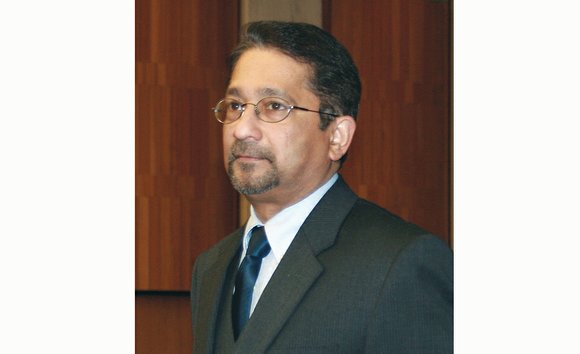A mountain of problems uncovered in city finance division
Jeremy M. Lazarus | 9/11/2015, 2:23 a.m.
Unpaid bills piled up and bank statements went unreconciled for months, creating uncertainty in the cash flow.
Then after half the staff left, temporary workers had to be hired to try to clear the backlog of unpaid invoices from vendors who begged to be paid.
Finally, management decided payments could be made without any check as to whether the ordered goods had arrived or services completed.
Welcome to the City of Richmond’s Finance Department and its accounts payable division.
In a stinging, 23-page report issued Tuesday, City Auditor Umesh Dalal found plenty wanting in the operations of the division that is responsible for paying for everything from employee wages to city purchases, amounting to $1.4 billion a year.
According to the report, accounts payable has problems due to “inadequate staff, lack of proper oversight and lack of formal processes.”
While Mr. Dalal did not find any evidence of fraud, his report states that the sheer volume of money handled by the Finance Department and lack of oversight would have made it easy to accomplish.
He did find evidence of double payments amounting to about $47,700, with about half never recovered.
The problems in this key area of the Finance Department help explain why Mayor Dwight C. Jones’ administration has been unable to complete yearly financial reports outlining how the city’s money is being spent.
That includes the Comprehensive Annual Financial Report for Fiscal 2014 that was due in November, but has not been completed 10 months later.
In response to the report, the Jones administration is promising to usher in change in the division. The administration accepted 21 of Mr. Dalal’s recommendations and vowed to implement them quickly.
That includes new controls, including blocking accounts payable personnel from being able to make payments greater than the purchase order and limiting the number of people allowed to set up a vendor account.
Mr. Dalal’s staff issued its report after reviewing 18 months of accounts payable operations from July 2013, when a new $18 million financial system called RAPIDS went online, through Dec. 31, 2014.
In the report, Mr. Dalal depicts an understaffed, 12-person division trying to deal with a flood of 98,000 invoices without appropriate training and policies in place.
The report found that the division’s problems became acute after the RAPIDS system went online. Instead of having individual departments input invoices and send them to the division for payment, city management ordered all invoices handled by the accounts payable division, the report stated.
Centralizing invoices could have worked if there had been proper staff and training. Instead, the change created big headaches, the report found, as the division had only six clerks.
“The division did not receive any additional staff to accomplish this substantial assignment,” the report noted. “This created a huge backlog of invoices that needed to be processed.”
Most of the clerks quit, forcing temporary workers with little training to be brought in to handle the work.
The backlog also led management to drop a control designed to ensure that the proper payment was being made. In the past, accounts payable cut a check for goods or services after a three-way match of paperwork. The three items included an approved purchase order, a receipt showing the ordered goods had arrived or the services completed and evidence the invoice price was in line with the agreed price.
Now, payment is made with just two items in place — an approved purchase order and an invoice.
Mr. Dalal recommended that the Finance Department reinstate the three-way match process, and the administration has promised to do so by the end of this year.
The administration also agreed to determine the ability “to implement an automated three-way match” to make the process more efficient.







